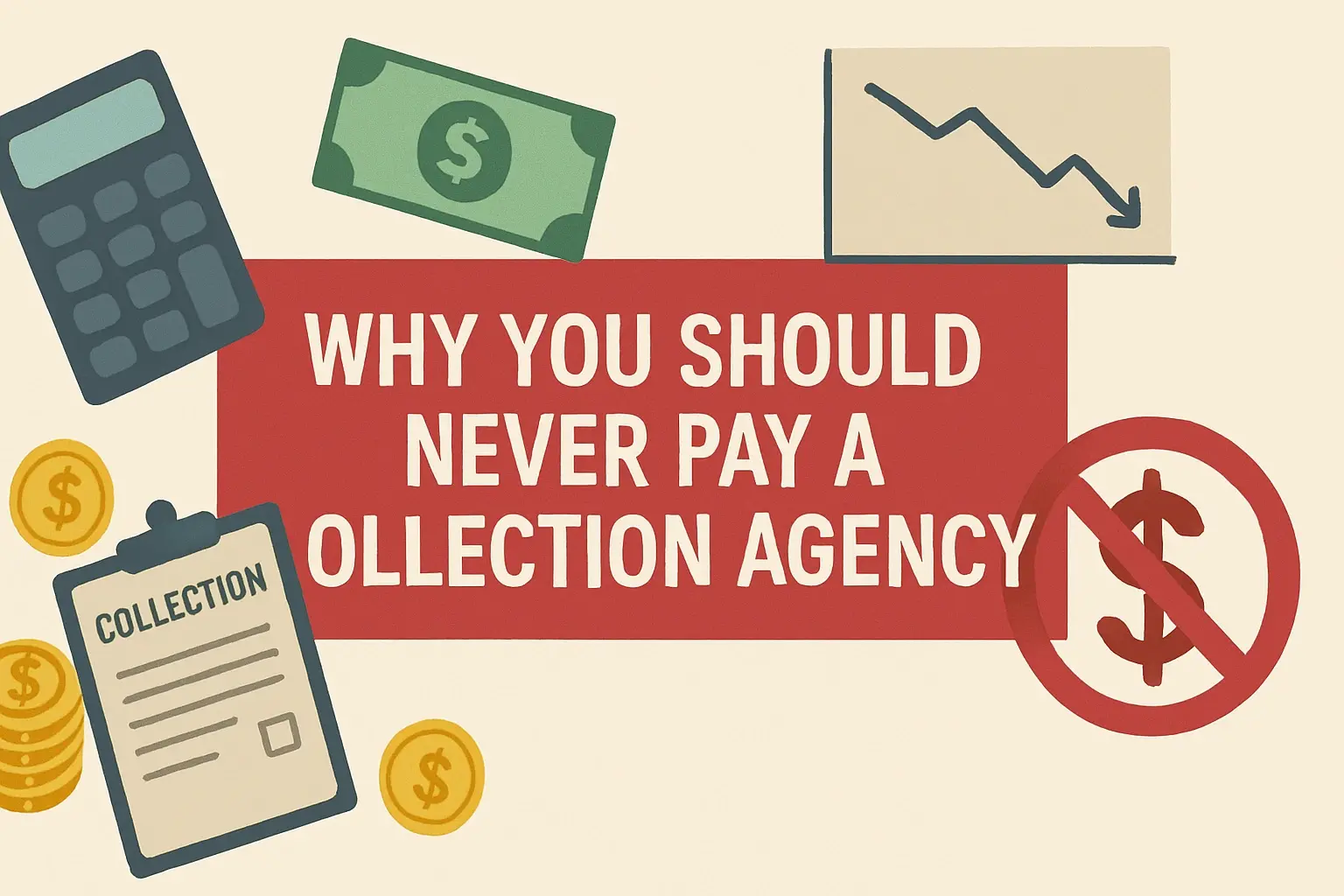-
Posted on: 17 Jun 2024

-
A poor credit score can significantly impact your financial life, affecting your ability to get loans, secure favorable interest rates, and even rent an apartment. Many individuals struggling with negative items on their credit reports turn to credit repair services for help. But what are the actual credit repair costs involved? Understanding the pricing structure, potential fees, and alternative options is crucial before making a decision.
Understanding the Basics of Credit Repair
Credit repair is the process of challenging inaccurate, incomplete, or unverifiable information on your credit reports with the goal of removing those negative items and improving your credit score. This can involve disputing errors with the three major credit bureaus (Equifax, Experian, and TransUnion), negotiating with creditors, and taking steps to improve your overall creditworthiness.
While you have the right to repair your credit yourself for free, some people choose to hire a credit repair company to navigate the process on their behalf. These companies typically offer services such as:
- Credit report analysis and assessment
- Dispute letter preparation and mailing
- Negotiation with creditors
- Ongoing monitoring of credit reports
- Personalized advice and guidance
Credit Repair Pricing Models: What to Expect
Credit repair companies employ various pricing models, each with its own advantages and disadvantages. Understanding these models is essential for making an informed decision.
1. Monthly Subscription Fees
This is the most common pricing model. You pay a recurring monthly fee for the credit repair services. The fee can range from $50 to $150 or more per month, depending on the company and the services included.
Pros: Predictable monthly expense, ongoing support and monitoring.
Cons: Costs can add up quickly, especially if it takes several months to see results; some companies may not be transparent about the specific actions they're taking each month.
2. Pay-Per-Deletion
With this model, you only pay when a negative item is successfully removed from your credit report. The fee per deletion can vary widely, from $50 to several hundred dollars, depending on the type of item and the complexity of the dispute.
Pros: You only pay for results, potentially saving money if the credit repair process is straightforward.
Cons: Can be expensive if you have multiple negative items to dispute; some companies may not actively work on disputes if they don't believe they'll be successful.
3. Flat Fee
Some companies charge a one-time flat fee for a comprehensive credit repair package. This fee can range from several hundred to several thousand dollars, depending on the scope of the services.
Pros: Predictable cost, potentially cost-effective if you need extensive credit repair services.
Cons: Can be a significant upfront investment; may not be suitable for individuals with only a few minor credit issues.
4. First Work Fees and Setup Fees
Be aware of initial fees. Many companies will charge a first-work fee (sometimes called a setup fee) which can be anywhere from $50 to $200. This fee is usually charged upfront, even before any work is done on your credit report. It's important to factor this cost into your overall budget.
Breaking Down the Typical Credit Repair Costs
To give you a clearer picture, let's break down the typical costs associated with each pricing model:
- Monthly Subscription: $79 - $149 per month
- Pay-Per-Deletion: $50 - $200 per deletion
- Flat Fee: $500 - $2000+
- Initial Setup Fee: $50 - $200
It's crucial to compare different companies and their pricing structures to find the best option for your specific needs and budget. Don't be afraid to ask questions and negotiate the price.
Factors Affecting Credit Repair Costs
Several factors can influence the overall cost of credit repair:
1. Number of Negative Items
The more negative items you have on your credit reports, the more work will be required to dispute them, potentially increasing the cost.
2. Complexity of Disputes
Some disputes are more complex than others. For example, disputing a bankruptcy or foreclosure will likely require more effort and expertise than disputing a late payment.
3. Length of Time Required
The length of time it takes to repair your credit can also affect the cost, especially with monthly subscription models. The longer you need the services, the more you'll pay.
4. Company Reputation and Experience
More reputable and experienced credit repair companies may charge higher fees, but they may also offer better service and a higher likelihood of success.
5. State Laws and Regulations
Some states have specific laws and regulations governing credit repair services, which can affect pricing and service offerings.
The DIY Credit Repair Option: Free and Effective?
It's important to remember that you have the right to repair your own credit for free. The Fair Credit Reporting Act (FCRA) grants you the right to dispute inaccurate or incomplete information on your credit reports. You can obtain free copies of your credit reports from AnnualCreditReport.com and then contact the credit bureaus directly to file disputes.
Pros of DIY Credit Repair:
- Free (except for the cost of postage and supplies)
- Full control over the process
- Opportunity to learn about credit and credit reporting
Cons of DIY Credit Repair:
- Time-consuming and potentially confusing
- Requires knowledge of the FCRA and credit reporting laws
- May be difficult to negotiate with creditors
If you're comfortable with research, writing letters, and persistent follow-up, DIY credit repair can be a viable option. However, if you're overwhelmed or lack the time and expertise, hiring a reputable credit repair company may be a better choice.
Avoiding Credit Repair Scams: Red Flags to Watch Out For
Unfortunately, the credit repair industry is rife with scams and unscrupulous operators. It's crucial to be aware of the red flags and avoid companies that make unrealistic promises or engage in illegal practices.
Red Flags:
- Promising guaranteed results or immediate credit score increases
- Requesting upfront payment before providing any services (illegal under the Credit Repair Organizations Act - CROA)
- Advising you to create a new credit identity or obtain an Employer Identification Number (EIN) for personal use
- Failing to explain your rights under the FCRA
- Pressuring you to sign a contract without reviewing it carefully
- Refusing to provide information about their fees or services in writing
Always do your research and check the company's reputation with the Better Business Bureau (BBB) and online reviews before hiring them. Be wary of companies that seem too good to be true.
Choosing a Reputable Credit Repair Company
If you decide to hire a credit repair company, take the time to choose one that is reputable, transparent, and compliant with the law. Here are some tips:
- Check their credentials and reputation: Look for companies that are registered with the relevant regulatory agencies and have a good track record.
- Read reviews and testimonials: See what other customers have to say about their experiences with the company.
- Ask about their pricing and services: Get a clear understanding of the fees, services included, and the estimated timeframe for results.
- Understand your rights: Make sure the company explains your rights under the FCRA and CROA.
- Read the contract carefully: Before signing anything, read the contract thoroughly and make sure you understand all the terms and conditions.
- Don't be pressured: A reputable company will not pressure you to sign a contract or make a decision on the spot.
Some well-known and generally reputable credit repair companies include Lexington Law, Credit Saint, and The Credit People, though it's important to research each and compare them to your specific needs.
Beyond Credit Repair: Building Long-Term Credit Health
While credit repair can help address negative items on your credit reports, it's only a temporary solution. To build long-term credit health, it's essential to adopt responsible financial habits, such as:
- Paying your bills on time, every time
- Keeping your credit utilization low (ideally below 30% of your credit limit)
- Avoiding opening too many new credit accounts at once
- Monitoring your credit reports regularly for errors or fraud
- Creating a budget and sticking to it
By focusing on these positive financial habits, you can build a strong credit history and achieve your financial goals.











